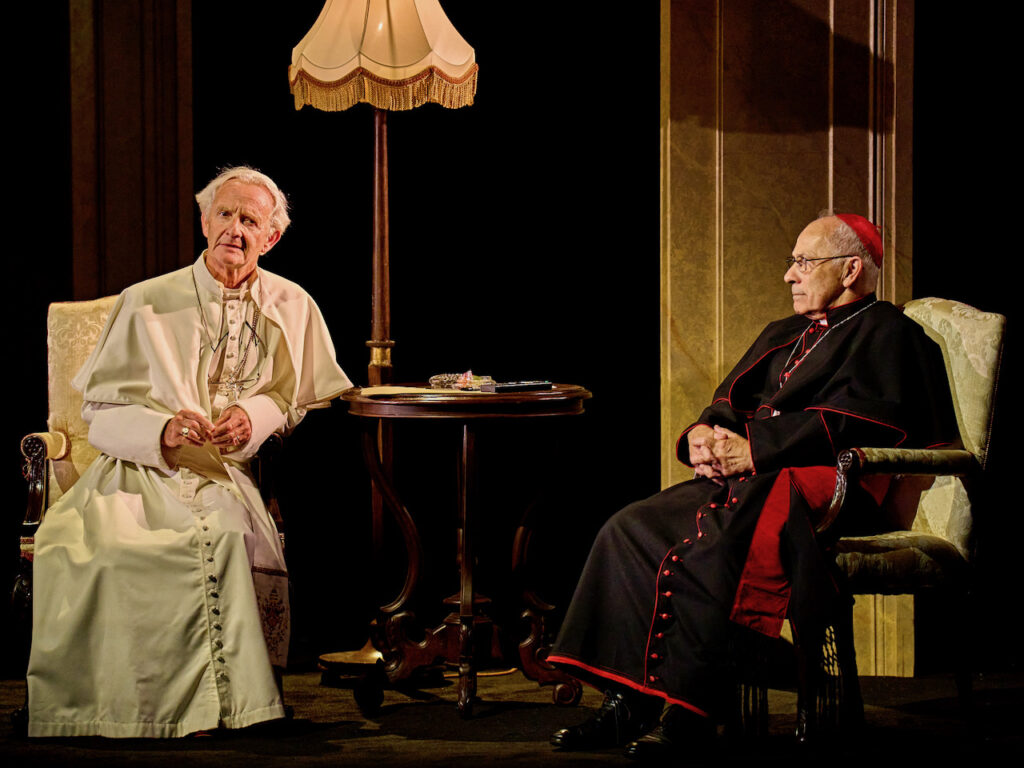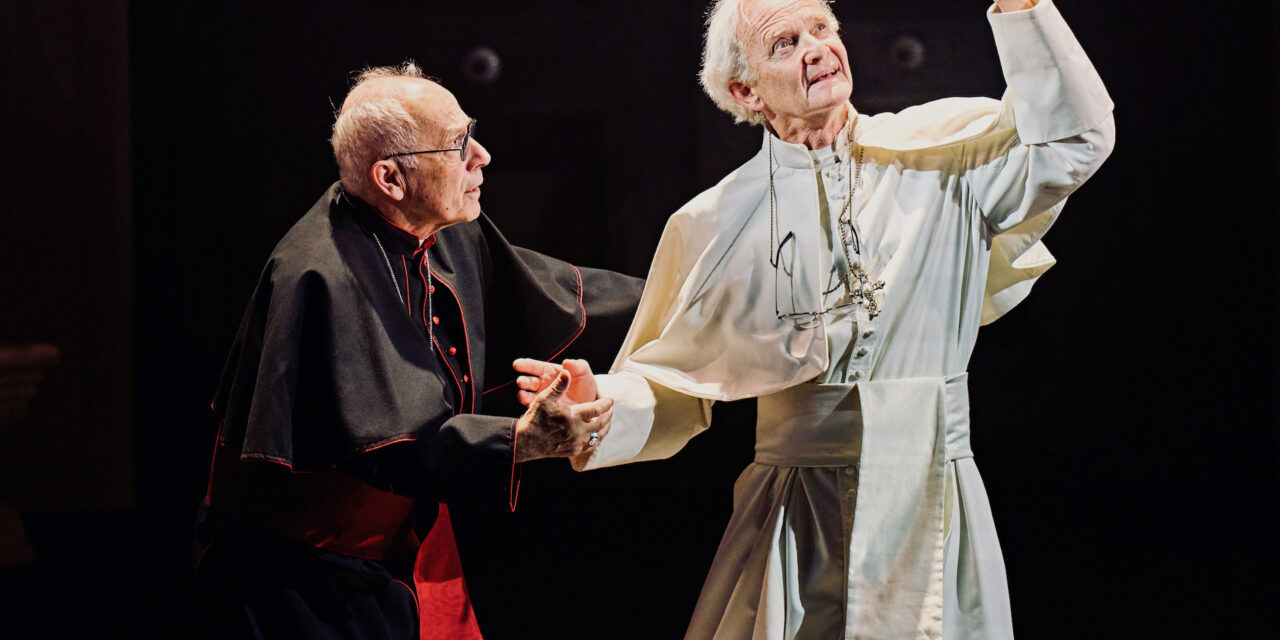
25 – 29 October
Anthony McCarten’s play takes as its source the time in the Catholic church when the rare, but not unique, situation in recent history arose of two popes being alive at the same time. One way to look at grand institutions is to examine those who purport to uphold its tenets. At one point during the play it becomes almost a black comedy with the two popes, Benedict XVI (Anton Lesser) and Francis (Nicholas Woodeson), trying to outdo each other in the depth of their sinning, and thus ineligibility for the papacy, and the right to lead their flock of well over a billion souls. I was reminded of the pre-verdict scene in Shaw’s St Joan where the Inquisitor and the Bishop of Beauvais discuss the meaning of heresy and the consequences of church teaching on the lives of ordinary people as another example of the kind of theological knockabout that holds the attention of an audience.
In another sense the play reflects the dilemmas of institutions worldwide as they grapple with the questions of reform and tradition, of who should decide the tradition and what should it be? Is change a compromise as Benedict asserts, or is it a necessity in order to stay relevant to the lives of the people they claim to lead as Francis believes?
Neither men were in any strict sense ascetic; for example Benedict, an authoritarian and known less than flatteringly as ‘God’s Rotweiller’, would be unable to claim the epithet owing to his love of music. Whilst Francis, though by no stretch of the imagination a voluptuary, nevertheless enjoyed some of the passions of the poor and needy whose cause, like the saint whose name he took, he championed throughout his life. This is then a play about an episode in the lives of two men who have so much and yet so little in common. Yet ultimately, it seems to me, the play addresses the absolute and dark fallibility of those who seek to influence or control the lives of others.
In Messrs Lesser and Woodeson we have actors with the ability to portray characters of keen intellect at the same time as conveying the emotional undercurrents that will often accompany, unacknowledged, men of ideas. Indeed purveyors of plays of ideas would have difficulty in compiling a wish list of leading actors that did not have Mr Lesser at the top. It is perhaps one of the strengths of British acting.
Whatever one thinks of the theological and moral stance of the play, this production is a tour de force of high definition acting.
★★★★☆ Graham Wyles, 26th October, 2022
Photo credit: Manuel Harlan


